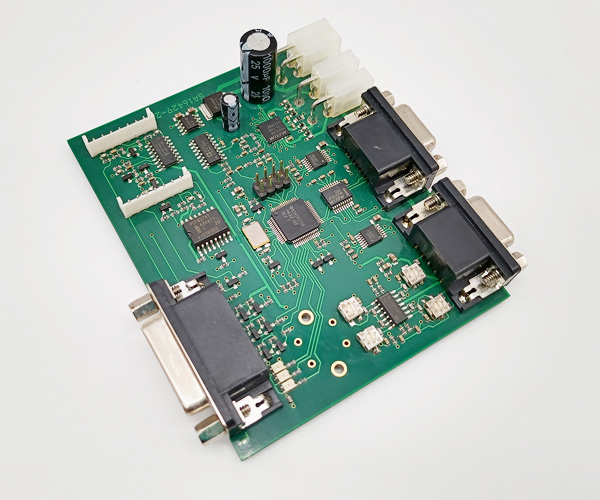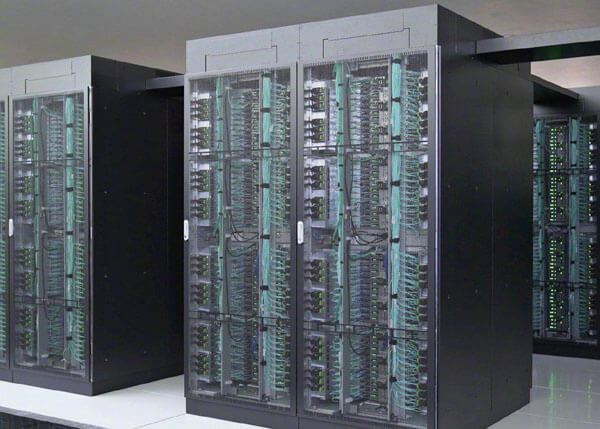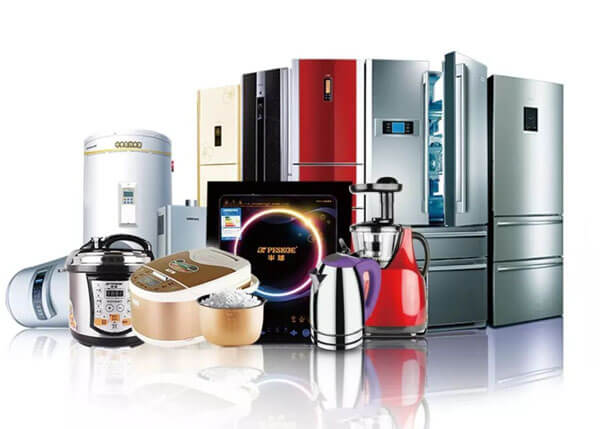Rigid PCBs are the most widely used type of circuit board, known for their firm, inflexible structure that supports and connects electronic components. Made from solid materials like fiberglass-reinforced epoxy (FR4), these boards maintain their shape, providing a stable foundation for circuits in a wide range of electronic devices. Their mechanical strength, durability, and cost-effectiveness make them ideal for mass production and long-term use.
With good electrical performance, heat resistance, and compatibility with automated assembly processes, rigid PCBs are used in everything from consumer electronics and industrial equipment to automotive systems and medical devices. Although they lack the flexibility of newer technologies, their structural integrity and reliability continue to make them a key element in modern electronic packaging solutions.
A rigid PCB (Printed Circuit Board) is a solid, inflexible board used to mechanically support and electrically connect electronic components. Made from sturdy materials like fiberglass (FR4), it maintains a fixed shape, offering durability, structural stability, and reliable performance. Rigid PCBs are commonly used in computers, televisions, industrial machines, and other devices where the circuit layout does not require bending or movement.

Number of manufacturing layers: 1-48 layers
Number of SMT lines: 8 high-speed SMT mating lines
SMT daily production capacity: More than 50 million points
Inspection equipment: X-RAY tester, first piece tester, AOI automatic optical tester, ICT tester, BGA rework station
Mounting speed: CHIP component mounting speed (optimal conditions) 0.036S/chip
Minimum package: 0201, accuracy up to +0.04mm
Minimum device accuracy: PLCC, QFP, BGA, CSP and other devices can be pasted, pin spacing up to +0.04mm
18 years of pcb manufacturing experience Authoritative manufacturing team
Adoption of advanced technology and manufacturing equipment Perfect production system Fast turnaround
Mature ISO9001/IATF16949 quality management system. Perfect ERP and MaS order management system.
Professional cost control engineers Cooperation with many raw material companies.
Free DFM inspection of PCB files and BOMs. PCB engineering evaluation and advice.
Specialized in medical, automotive, consumer electronics, new energy pcb. Serving global enterprises
Rigid PCBs, are circuit boards made from rigid substrates. This type of circuit board has good mechanical strength, stable electrical properties, good heat and moisture resistance, and is widely used in various electronic products, such as computers, communication equipment, household appliances and so on. The substrate of rigid PCB is usually a rigid material such as FR-4.
1. Good stability: rigid PCB is made of rigid substrate, has a high degree of rigidity and stability, not easy to bend or bend. This stability is conducive to ensuring the performance and life of electronic equipment.
2. High mechanical strength: Due to the use of rigid materials, rigid PCB has high mechanical strength and can withstand large mechanical stress. This makes it suitable for environments that need to withstand mechanical stress, such as automotive and aerospace.
3. Suitable for complex assembly: Rigid PCB is suitable for electronic devices that require a more complex assembly process and more components, providing stable mechanical support and the ability to fix electronic components.
4. Good thermal stability: Rigid PCB has better stability in high temperature environments and can withstand high temperature processes and high power applications.
5. Lower manufacturing costs: Compared to flexible PCBs, rigid PCBs usually have lower manufacturing costs and are suitable for high-volume production.




| Item | Process Capability |
| Layer Counts | 1-48L |
| Material | FR-4, Kingboard, Nanya, Shengyi, Rogers, Isola, ITEQ, Ventec, Arlon |
| Maximum Size | 600mm x 1500mm |
| Board Outline Tolerance | ± 0.10mm |
| Board Thickness | 0.2-8mm to 0.1mm-8mm |
| Thickness Tolerance(t≥0.8mm) | ± 8% |
| Thickness Tolerance(t<0.8mm) | ± 10% |
| Insulation Layer Thickness | 0.075mm-5.00mm |
| Minimum Line | 0.05mm |
| Minimum Space | 0.05mm |
| Out Layer Copper Thickness | 18um-350mm |
| Inner Layer Copper Thickness | 17um-210mm |
| Drilling Hole(Mechanical) | 0.15mm-6.35mm |
| Finish Hole(Mechanical) | 0.10mm-6.30mm |
| Diameter Tolerance(Mechanical) | 0.05mm |
| Registration(Mechanical) | 0.075mm |
| Aspect Ratio | 16:01 |
| Solder Mask Type | LPI |
| SMT Mini. Solder Mask Width | 0.075mm |
| Mini. Solder Mask Clearance | 0.05mm |
We're pleased to be welcoming customers to join us.





Shenzhen Leadsintec Group is a trusted Rigid PCB Supplier and one of the Best Rigid PCB Manufacturers delivering durable, high-precision printed circuit boards for global electronics. Our rigid PCBs are engineered with strong mechanical stability and reliable electrical performance, making them ideal for demanding industrial and commercial applications.
Rigid PCBs maintain their shape under stress due to their fiberglass-reinforced substrates, which provide long-term structural integrity. They are widely used in desktop computers, home appliances, automotive electronics, military systems, control panels, and high-power industrial equipment where consistency and toughness are essential.
A rigid PCB (Printed Circuit Board) is a board made from non-flexible, durable materials such as FR-4, high-temperature epoxy, ceramic substrates, or metal-core laminates. These PCBs do not bend or flex, making them ideal for equipment requiring stable mechanical support.
Rigid PCBs are commonly used in:
Their solid structure ensures long operating life and stable electrical performance.
1. Cost-Effective for Mass Production
Rigid PCBs have a standardized structure, making them economical for large-volume manufacturing.
2. Excellent Heat Dissipation
The rigid core materials dissipate heat efficiently—critical for high-power components such as CPUs, GPUs, converters, and power modules.
3. Supports High Component Density
Rigid substrates allow both SMT and through-hole components to be mounted securely.
4. Strong Mechanical Stability
Ideal for environments with vibration, movement, or heavy duty operation.
5. Long-Term Reliability
Rigid PCBs maintain consistent performance over years of usage.
As a top Rigid PCB Manufacturer, we support a wide range of design and production needs:
✔ PCB Thickness Options
0.4 mm to 3.2 mm to meet different mechanical and electrical requirements.
✔ Copper Weight Options
From 0.5 oz to 4 oz suitable for low-power circuits to high-current power boards.
✔ Available Surface Finishes
✔ Layer Count
Single-layer, double-layer, up to 16-layer rigid PCBs.
✔ Advanced Drilling Options
✔ Material Choices
We support customization for industrial, commercial, and specialized electronic applications.
This makes development and mass production faster and cost-effective.
Every rigid PCB undergoes strict quality checks:
✔ Optical Inspection (AOI)
Identifies circuit defects, spacing errors, and solder mask alignment.
✔ Electrical Testing
Ensures every trace and connection performs correctly.
✔ Thermal Stress Testing
Checks durability under temperature cycling.
✔ Mechanical Reliability Testing
Ensures structural strength for industrial and automotive use.
We comply with IPC standards, and all documentation is fully traceable for industries requiring strict quality records.
When you choose Shenzhen Leadsintec Group, you get:
As your preferred Rigid PCB Supplier, we provide durable, stable, and high-performance circuit boards designed to support your electronic products with long-term reliability.
1. What industries commonly use rigid PCBs?
Computers, automotive, industrial control, medical devices, home appliances, and telecommunication equipment.
2. What materials are rigid PCBs made from?
FR-4, high-TG laminates, metal-core materials, ceramic substrates, and high-temperature epoxy.
3. How many layers can rigid PCBs have?
From 1 to 16 layers depending on design needs.
4. How fast can you produce rigid PCB prototypes?
Typically within 3–5 days, depending on complexity.